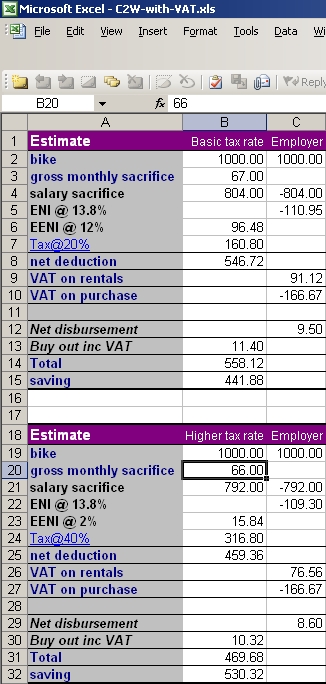it's not difficult, David. In my view, a self administered scheme is a lot simpler than signing up with one of the providers. Do you know how many pages the contract with cyclescheme has?
If sites like pedelecs.co.uk take on the task to explain to employers that it's not difficult then we may get thousands of small entities to take it on. Employers download a sample contract, fill in name and address, the monthly salary sacrifice is set to 5% for 12 months.
It can be that simple.
If sites like pedelecs.co.uk take on the task to explain to employers that it's not difficult then we may get thousands of small entities to take it on. Employers download a sample contract, fill in name and address, the monthly salary sacrifice is set to 5% for 12 months.
It can be that simple.



